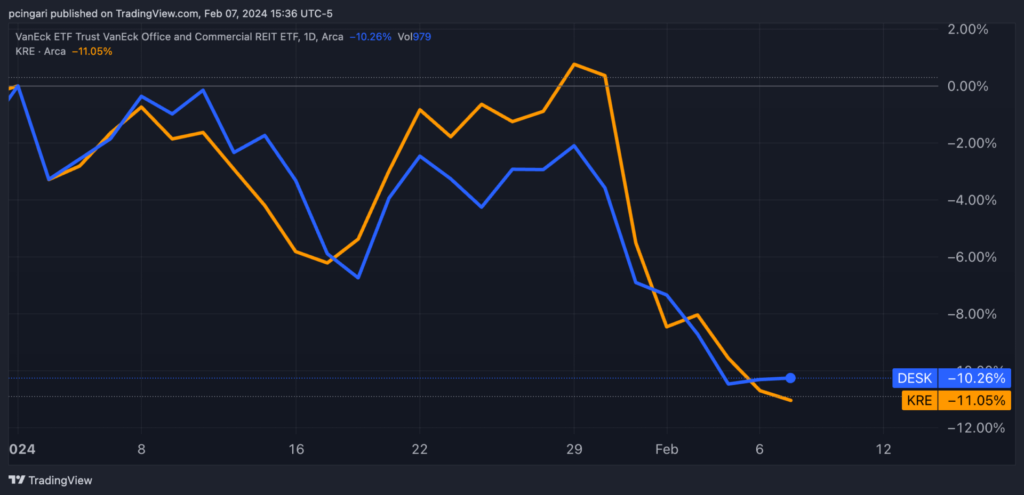Zinger Key Points
- Deutsche Pfandbriefbank AG's market value plummets over 20% amid increased risk provisioning for commercial real estate loans.
- European commercial real estate sector's struggles reflect in banking, with PBB setting aside €210-€215 million for potential losses.
- Get Wall Street's Hottest Chart Every Morning
Munich-based Deutsche Pfandbriefbank AG, or PBB, experienced a dramatic drop in its market value this week after it decided to ramp up its risk provisioning for potential losses in its loan portfolio tied to commercial properties.
The move reflects growing concerns over the sector’s exposure and ongoing upheaval within the regional banking system.
Shares of PBB, which specializes in commercial real estate finance with over 150 years of history, were down by more than 16.6% at last check Wednesday, Feb. 7. Its subordinated bonds mirror this sharp decline.
The company’s risk provisioning for the year 2023 is expected to total between €210 million and €215 million.
This substantial financial set-aside is in response to the “persistent weakness of the real estate markets,” according to the bank.
PBB described the current scenario as “the greatest real estate crisis since the financial crisis.”
Occupancy Rates and Office Space Dynamics: The average occupancy rate for European offices has shown modest improvement, climbing from 55% in February 2023 to 57% in September 2023, as per Savills Research.
However, this recovery lags behind the pre-pandemic average occupancy rate of 70%.
Industry experts have noted a shift in market demand towards high-quality, green-certified, and collaborative workspaces. This trend aligns with corporate sustainability goals, underscoring a changing landscape in office real estate.
ECB and Bundesbank Weigh In on CRE Risks: The European Central Bank (ECB) has expressed concern over the vulnerability of real estate firms to losses, particularly in the context of the ongoing downturn in euro area commercial real estate markets.
The ECB’s November Financial Stability Review highlighted the risk of significant deterioration in CRE asset quality, which could challenge banks heavily exposed to CRE loans.
Additionally, the Bundesbank pointed out the German banking system’s exposure to the U.S. commercial real estate market, noting it as small yet concentrated among individual banks.
Since the beginning of the year, commercial real estate stocks, as tracked by the VanEck Vectors Office and Commercial Real Estate ETF DESK, and regional banks, as monitored by the SPDR S&P Regional Banking ETF KRE, have exhibited broadly similar dynamics.
Both sectors have navigated through the financial currents with strikingly similar dynamics, painting a vivid picture of the interconnectedness between the real estate market and regional banking stability.

Image: Shutterstock
© 2025 Benzinga.com. Benzinga does not provide investment advice. All rights reserved.
Trade confidently with insights and alerts from analyst ratings, free reports and breaking news that affects the stocks you care about.